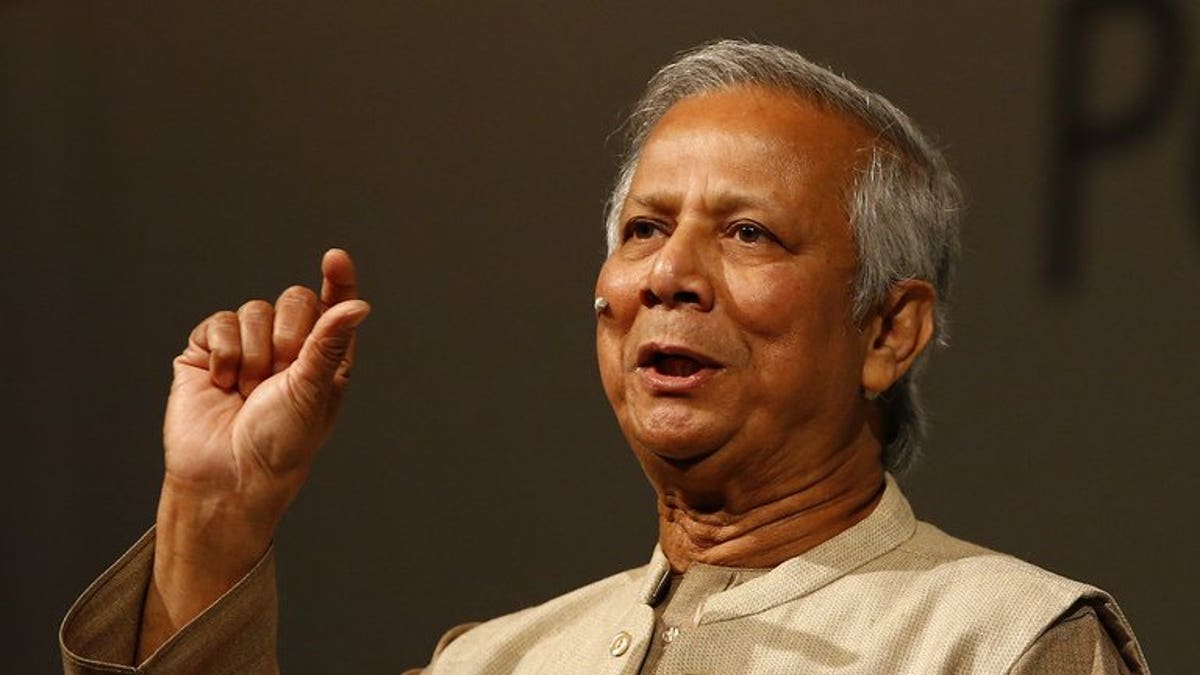
Nobel Peace Prize winner and microcredit pioneer Muhammad Yunus delivers a speech in Vienna, on November 8, 2012. Bangladesh authorities Thursday widened a tax probe against Yunus, accusing seven enterprises he founded and now chairs of evading taxes and under-reporting profits. (AFP/File)
DHAKA (AFP) – Bangladesh authorities Thursday widened a tax probe against 2006 Nobel Peace Prize winner Muhammad Yunus, accusing seven enterprises he founded and now chairs of evading taxes and under-reporting profits. laureate
The National Board of Revenue (NBR) made the allegations in a press briefing in the capital Dhaka after the seven firms, including the country's largest renewable energy company, said they have paid taxes regularly.
"The statements of the seven companies are not based on facts," NBR chairman Ghulam Hussain said and added that the seven companies evaded taxes, obtained tax exemption benefits illegally and undereported profits
The firms are: Grameen Fisheries and Livestock Foundation, Grameen Capital Management, Grameen Communications, Grameen Shakti, Grameen Udyog, Grameen Trust and Grameen Kalyan.
Yunus founded the enterprises as sister organisations of his micro-finance pioneer Grameen Bank in an effort to cut poverty and boost up growth in rural areas. He is also the chairman of all seven enterprises.
The latest allegations come after the Bangladesh cabinet led by Prime Minister Sheikh Hasina this week asked the tax administration, central bank and banking regulators to pursue legal action against Yunus for avoiding taxes on income from awards, book royalties and foreign tours.
Yunus's office denied the allegations by the NBR, calling them "baseless".
It said the micro-credit pioneer had paid all taxes according to Bangladesh's laws.
Yunus, who set up Grameen Bank in 1983 and made it a global success story in tackling poverty, was sacked from the microfinance bank in 2011.
His dismissal was widely seen as orchestrated by Hasina who was enraged by Yunus's brief foray into politics in 2007.
Yunus, regarded as a national hero by many, has appeared to have enraged Hasina after he called for elections under a caretaker administration -- a key demand of the country's opposition.
In recent weeks, major political parties, including the main opposition, have rallied around Yunus after a government commission suggested a state takeover of Grameen.
Yunus, who jointly won the Nobel Peace Prize with the bank in 2006 for economic and social development, was fired as head of the bank for exceeding the mandatory retirement age of 60.
He challenged the move in court but lost. The court ruled the bank was a government institution, not a private enterprise owned by its lenders, as Yunus and his lawyers maintained.
Former US secretary of state Hillary Clinton, a personal friend, heaped praise on Yunus during a visit to Dhaka in May last year and urged Hasina's government to maintain "an environment where civil society groups operate freely".
